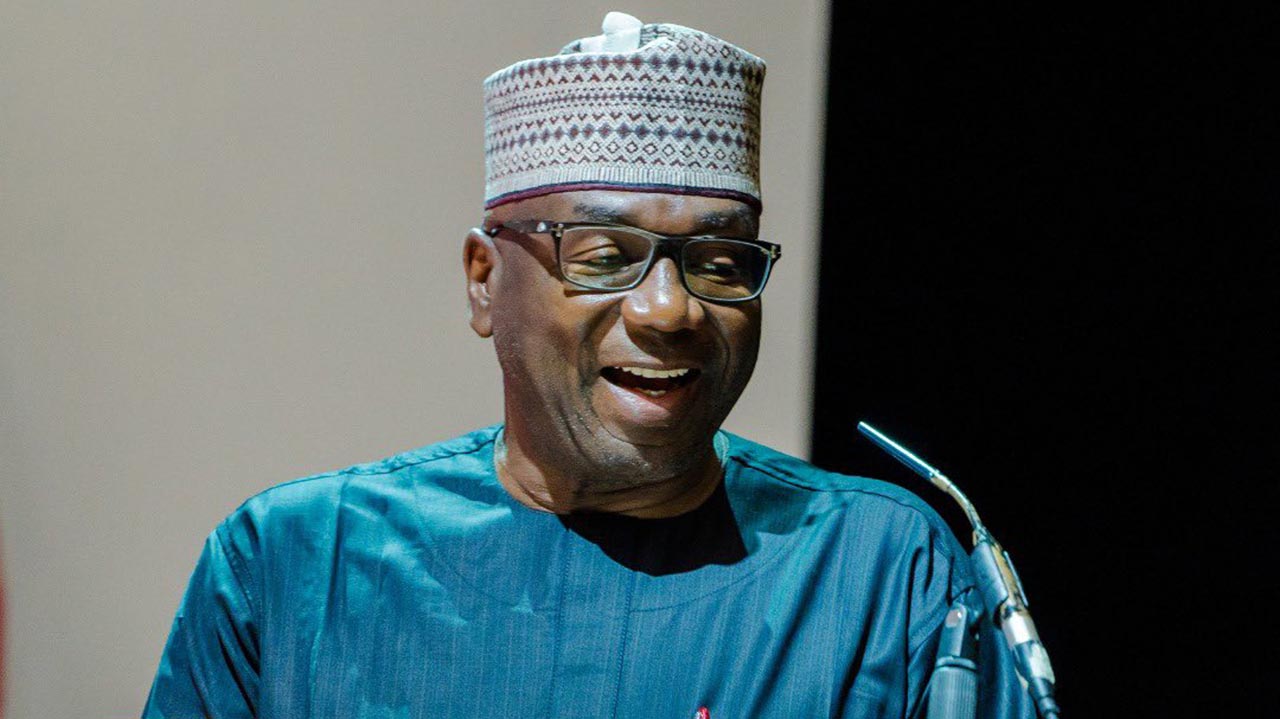Kwara Pledges Improved Investment in Education

…As FG launches project to tackle out-of-school children
Governor Abdulrahman Abdulrazaq of Kwara State has said that the government birthed an e-learning system in basic schools to impact digital skills and improve learning outcomes.
The governor spoke recently in Ilorin, the state capital, at the official launch of the National Campaign on Out-Of-School Children and Distribution of School Materials to selected Out-Of-School Children (OOSC) in Kwara State.
The governor, who was represented by his Chief of Staff, AbdulKadir Mahe, said: “Introduction of the e-learning system by our government to our schools through the establishment of digital literacy centers and KwaraLEARN innovative teaching techniques in education, as well as the school feeding programme have not only reduced the pressure on the parents but also increased enrolment and motivated the pupils/students to be regular in the school.”
The term “Out-Of-School Children” refers to children of primary or secondary school age who are not enrolled in a formal educational institution or who are deprived of the opportunity to access quality education and at the risk of missing out on valuable learning experience and skill development.
Abdulrazaq said the government will double effort in pushing policies and programmes that will continue to make the learning environment attractive and ensure that no Kwara child is left out of school.
The governor, who described the step to eradicate out-of-school children in Nigeria as unique, thanked the Federal Ministry of Education for picking Kwara as one of the first states to benefit from the national programme.
“It is my sincere hope and aspiration that the overall target of this campaign will lead to an improved enrollment of school children and eradicate the menace of out-of-school children in our society, I urge parents to key into the initiative.”
Minister of Education, Tahir Mamman said research studies indicate that Nigeria accounts for one out of every five out-of-school children in the world and 45% of out- of-school children in West Africa, saying this ranking is disturbing and unacceptable for a country regarded as Africa's largest economy.
Tahir, represented by Olatunji David, said the Federal Government was mindful of the danger of the out-of-school children phenomenon and urged all key stakeholders, including civil society organizations, community and religious leaders, to act fast in checking the trend.
“Stemming the tide of out-of-school children is a task that this government seeks to accomplish. This is because we are mindful of the spiral effects of having a large number of uneducated population.
“One of the implications is that Nigeria will constantly produce miscreants who are ready tools in the hands of criminal gangs,” he said.
He also appealed to all good spirited individuals within the state to aid the less privileged in communities by adopting the children and youths who are of school age and supporting their education.
The Minister praised Governor Abdulrazaq for his government's commitment to changing the fortune of education in the state.
Kwara State Commissioner for Education and Human Capital Development, Sa'adatu Modibbo kawu, in her submission, called on the federal government to continue to give Kwara a priority in its dealings with states, given its (Kwara) sterling record of performance in basic education programmes.
“You must have been receiving records of performance of Kwara State in basic education, and you will discover that we are not lagging behind. I am appealing that Kwara State should always be given priority based on our track record of performances,” she said.
Also, Sheu Raheem Adaramaja, Chairman, Kwara State Universal Basic Education Board (KwSUBEB), said the pride of any society depends largely on the structure, status and achievement of its basic education.
He said the administration has invested so much in school infrastructure and human capital development, as well as the welfare of teachers and non-teaching staff to motivate higher productivity in schools.
He listed poverty, cultural norms, influx of immigrants, inadequate infrastructure and lack of awareness by most parents as some of the factors contributing to the growth of out-of-school children.
Cloud Tag: What's trending
Click on a word/phrase to read more about it.
Omoniyi M. Ayinla Omotosho Mohammed Khadijat Kubura Kwara State Pension Board Bilikisu Oniyangi Ben Duntoye Ahmad Lawan Yakubu Shaaba Maryam Ado Bayero Titus Ashaolu Mary Arinde Abdullahi Atanda Maigida Kwara State Sports Commission Christian Association Of Nigeria Babatunde Ishola Babaita Osuwa Patience Jonathan Illyasu Abdullahi Elesie Of Esie Olaosebikan Benin Republic Gafaru Olayiwola Olorisade Iponrin Oyedun Juliana Funke Galadiman Ngeri Theophilus Oyebiyi Aliyu Adebayo SSA Youth Kassim Babamale Idris Amosa Saidu Yakubu Mohammed Abdullahi Olosi Of Osi Tunji Arosanyin Yunus Lawal Isin Democracy Day Oyun Salman Suleiman Ayinde Oki Olateju Lukman Erin-ile Yusuf Ali Iqra Books Ibrahim Kayode Adeyemi Mahfouz Adedimeji Isiaka AbdulRazaq Local Government Pension Board Eghe Igbinehin Olatunji Ibrahim Saka Abimbola Isau Fatimoh Lawal Jumoke F. Ajao Muyideen Ajani Bello Mope Dasuki Belgore Aminat Ahmed Kwara Restoration Project Omupo Abubakar Olusola Saraki Dan Iya Of Ilorin Esinrogunjo Bilikisu Gambari Ibrahim Oloriegbe Wahab Femi Agbaje Muhammad Sirajo Aliyu Ojuekun Bolakale Saka Afolabi-Oshatimehin Gbajabiamila Ministry Of Women Affairs And Social Development Funmi Salau Abdullahi Biffo Kwara State Polytechnic Sola Saraki University Muhammad Akande Olarewaju Odunade Abdulrasheed Lafia Shehu Alimi Foundation For Peace And Development


